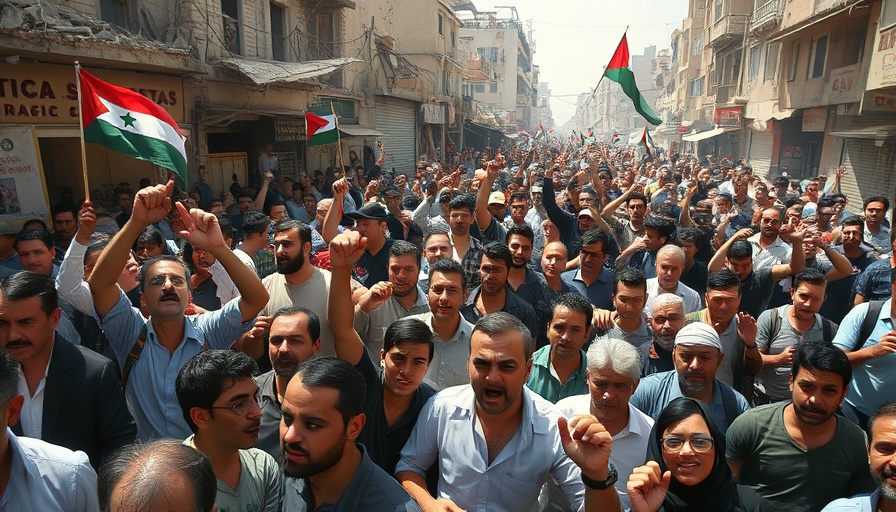
The Unprecedented Wave of Dissent in Gaza
In a rare and startling public display of dissent, Palestinians have taken to the streets of Northern Gaza, protesting against Hamas, the militant group that has ruled the region. This surge in public anger, ignited by a prolonged military conflict with Israel, reflects a broader sentiment among some Gazans who are beginning to hold Hamas accountable for the ongoing devastation and loss of life. As tensions escalate in the region, this protest serves as a poignant reminder of the internal dissent and the complexities of the Gaza Strip’s politics.
In 'Hundreds of Palestinians take part in anti-Hamas protests in Gaza', the discussion dives into public anger toward Hamas amidst escalating tensions, prompting us to analyze the significance of this movement.
Understanding the Context: Hamas and the Gaza Conflict
The backdrop to these protests is the ongoing conflict that has persisted for over 17 months, marked by intense military actions and substantial civilian casualties. The recent resumption of military strikes by Israel, after a brief lull, has only intensified the plight of Gazans, pushing some to shift their anger from Israel to Hamas. While the prevailing narrative often focuses on Israel’s actions, the rising discontent towards Hamas indicates a nuanced understanding among the populace about who bears responsibility for their suffering.
The Gaza Health Ministry has reported staggering numbers, with at least 830 individuals killed since the escalation of military operations last week. Such losses inevitably prompt questions about governance and accountability, as the citizens weigh the implications of Hamas’s continued rule amidst ongoing conflict.
A Call for Change: The Demands of Protestors
The protesters, chanting "Out Hamas!", represent a faction of the population who are not just calling for an end to the war but are also demanding a change in leadership. This sentiment amplifies the concern that Hamas’s authority may now be perceived as a liability rather than a source of protection against external adversaries. The implications of this demand are provocative; they hint at a desire for a political transformation within Gaza that could reshape governance and military strategies in the region.
The Broader Implications for Gaza and the Region
With the situation in Gaza hanging in the balance, international observers are keenly watching how Hamas responds to this discontent. If Hamas fails to address the grievances of the people, there could be significant ramifications for its governance. Moreover, the protest indicates a possible shift in public sentiment that could pressure leaders in similar authoritarian regimes across the region, potentially sparking a wave of protests in solidarity or replication.
Social Dynamics: Impact of Public Anger
This public display of anger could pave the way for an environment where dissent becomes more normalized, igniting conversations about governance, accountability, and civic rights. Such dynamics highlight how prolonged conflict can catalyze a critical reassessment of leadership among populations. For Gazans, the protest signifies not just anger but a yearning for a voice in their political processes, a crucial shift in a landscape long dominated by military narratives.
Exploring the Future: What Lies Ahead?
As the Israeli military pressure mounts on Hamas, with calls for them to release hostages believed to be held, one must consider the future of governance in Gaza. Will such protests compel Hamas to initiate reforms or make concessions? Could this dissent pave the way for future political negotiations? The questions loom large and the answers remain uncertain as the situation continues to evolve.
Conclusion: The Growing Voices of Change
The recent protests in Gaza highlight a significant moment in the Palestinian narrative, showcasing the complexities of public sentiment in war-torn regions. As Gazans assert their voices, they challenge longstanding dynamics of power and rule, opening doors for new discussions on governance in the region. The stakes are high, and the world watches closely. Given this evolving narrative of dissent, it is crucial to remain engaged with the developments in Gaza and the broader implications for both regional politics and humanitarian efforts.
 Add Row
Add Row  Add
Add 




Write A Comment